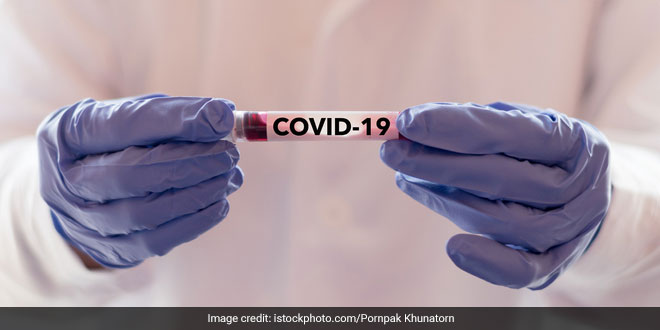Highlights
- More T-Cells found is severe COVID-19 cases: Study
- T-cells help fight reinfections, say researchers
- Memory T cells provide long-term immunity: Researchers
Los Angeles: Scientists, including one of Indian-origin, have found that people with severe COVID-19 are left with more of the immune system’s protective “memory” T cells needed for fighting reinfection with the novel coronavirus. The study, published in the journal Science Immunology, assessed the expression of individual genes of a subset of T cells isolated from both COVID-19 patients and non-exposed donors. Analysing more than 80,000 CD8+ T cells, the scientists, including those from La Jolla Institute of Immunology (LJI) in the US, believe the study is the first to describe these cells that fight the SARS-CoV-2 virus in “high resolution” detail.
Also Read: Russian COVID-19 Vaccine ‘Sputnik V’ Under Phase 3 Trials In India To Cost Less Than $10 Per Dose
While antibodies offer one mode of protection against pathogens, the cells of the immune system, including the CD8+ T cells are responsible for destroying virus-infected host cells, the researchers explained. In particular, they said “memory” CD8+ T cells are important for protecting the body from reinfection against many viruses. In the research, the scientists assessed CD8+ T cells from 39 COVID-19 patients and 10 subjects who had never been exposed to the virus whose blood samples were given before the pandemic.
Of the 39 patients, they found that 17 had a milder case that did not require hospitalisation, while 13 had been admitted for treatment and nine had needed additional ICU support.
The data from this study suggest people with severe COVID-19 cases may have stronger long-term immunity, said study co-leader LJI Professor Pandurangan Vijayanand.
While the researchers expected to see a stronger CD8+ T cell response in the mildly infected patients — since these are cases where the immune system was equipped to fight off a severe infection — the study showed the opposite. The scientists observed weaker CD8+ T cell responses in patients with milder COVID-19 cases, and the strongest responses in the severely ill patients who required hospitalisation or ICU support.
“There is an inverse link between how poorly T cells work and how bad the infection is. I think that was quite unexpected,” explained Christian H Ottensmeier, another leader of the study from LJI. In the milder cases, the scientists said there were molecular signs of T cell “exhaustion” — a phenomenon in which the cells receive so much stimulation during a viral attack that they are less effective in doing their jobs.
Citing one of the limitations of the study, the scientists said it relied only on the CD8+ T cells found in blood samples to make the inference. In future studies, they hope to uncover how T cells in tissues hit hardest by SARS-CoV-2, such as the lungs, react to the virus. The researchers believe this would be an important step since memory T cells which provide long-term immunity need to live in the tissues. “This study is very much a first step in understanding the spectrum of immune responses against infectious agents,” Mr. Ottensmeier added.
Also Read: South African Coronavirus Variant May Escape Antibodies, Cause Reinfection, Say Scientists
(Except for the headline, this story has not been edited by NDTV staff and is published from a syndicated feed.)
NDTV – Dettol Banega Swasth India campaign is an extension of the five-year-old Banega Swachh India initiative helmed by Campaign Ambassador Amitabh Bachchan. It aims to spread awareness about critical health issues facing the country. In wake of the current COVID-19 pandemic, the need for WASH (Water, Sanitation and Hygiene) is reaffirmed as handwashing is one of the ways to prevent Coronavirus infection and other diseases. The campaign highlights the importance of nutrition and healthcare for women and children to prevent maternal and child mortality, fight malnutrition, stunting, wasting, anaemia and disease prevention through vaccines. Importance of programmes like Public Distribution System (PDS), Mid-day Meal Scheme, POSHAN Abhiyan and the role of Aganwadis and ASHA workers are also covered. Only a Swachh or clean India where toilets are used and open defecation free (ODF) status achieved as part of the Swachh Bharat Abhiyan launched by Prime Minister Narendra Modi in 2014, can eradicate diseases like diahorrea and become a Swasth or healthy India. The campaign will continue to cover issues like air pollution, waste management, plastic ban, manual scavenging and sanitation workers and menstrual hygiene.
[corona_data_new]



















